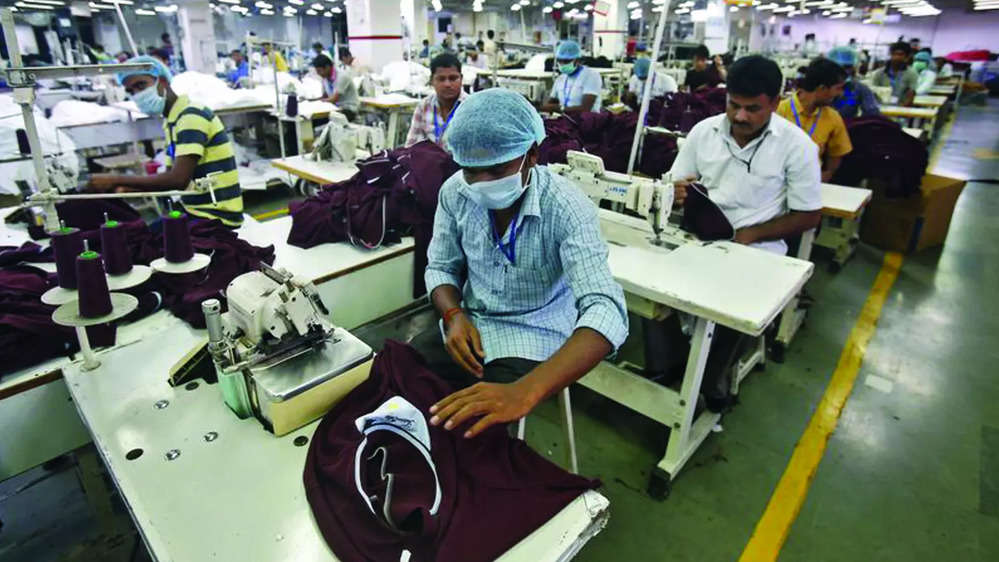‘Not even one worker,” declared the first responder. Several others nodded in agreement. No one disagreed.
This will dismay youngsters dreaming of millions of jobs after hearing of the employment incentives announced by finance minister Nirmala Sitharaman in her Budget speech.
The Budget deserves praise for good fiscal management, avoidance of freebies, high capex, and stability in medium term-policies. Sitharaman reduced the budgeted fiscal deficit from 5.9% of GDP last year to 4.9% this year. Such a steep fall is usually associated with a bankrupt country being forced to shrink under IMF discipline.
But India is the fastest-growing major economy, with 8.2% GDP growth last year and probably 7% this year too. For a finance minister to combine strict fiscal discipline with fast GDP growth, capex of 3.4% of GDP, reduced income-tax for the middle class, and large allocations to satisfy key coalition partners from Bihar and Andhra Pradesh is a feat.
Her most discussed policy measure is her employment package. A highlight of Narendra Modi’s second term was the introduction of a Production Linked Incentive (PLI) to spur manufacturing in 14 sectors, a scheme that the govt says is a great success. But, many asked, since employment is such a big problem, why not have similar incentives to spur job creation too?
The answer has come in Modi 3.0. The Budget has launched an employment-linked incentive comprising three schemes over five years.
Scheme A will provide one month’s salary as an incentive to first-time employees entering the formal sector and registering with the Employees Provident Fund Organisation (EPFO). This will be up to Rs 15,000 in three instalments. This is expected to benefit 210 lakh employees.
Scheme B aims to help create jobs in manufacturing. It provides EPFO incentives linked to the scale of hiring to both employers and employees over the first four years of new hiring. It aims to benefit 30 lakh workers.
Scheme C targets employers, reimbursing up to Rs 3,000 per month of employers’ contributions to the EPFO for two years. The workers must be new contributors to EPFO, and have a salary below Rs1 lakh/month. This is expected to benefit 50 lakh new workers.
One can understand incentives for employers, but why for employees too? Millions of youngsters are dying to get into the formal sector anyway.
The number of worker-beneficiaries projected by these three schemes is humongous. Is it credible? Alas no, going by the reaction of businessmen at the meeting I attended.
One said, “I hire only the people I need. Why should I hire anybody extra just because the govt offers a subsidy?”
Another said, “I need extension of the anti-dumping duty on imports from China. Subsidies for new hiring will not help me. Only anti-dumping duties will.”
Yet another said, “The govt’s subsidy covers only a small fraction of the cost of an employee. But even if it covered the full cost, I would not hire. We would not have enough work for such employees, and a worker who just hangs around erodes the work culture and undercuts discipline.”
One whose business is high-tech said, “The only person I want to hire is an expert on artificial intelligence.” He later said, ‘What we need is not first-timers but highly skilled labour. I cannot get high-end welders or machine operators. A subsidy for unskilled workers is no help at all.”
Maybe this group of businessmen was not fully representative. Maybe others will hire an extra person or two. But not many more.
Does this mean the schemes will be derided as a big flop? Not at all. I asked the businessmen in Mumbai, “Were you going to hire some people anyway before the scheme was announced?” Many businessmen nodded. “And if the people you were going to hire anyway qualify for subsidies, will you grab these?”
“But of course,” was the response. “If the govt wants to pay us for what we were going to do anyway, why should we not accept it?”
So, businesses galore will apply for hiring incentives, and govt will chalk up every subsidy payment as additional hiring. Since nobody knows what hiring would have been without incentives, nobody will be able to contradict the statistics.
Bottom line: even if additional hiring is zero, govt will still be able to claim success. Businessmen will smile silently. Even the unemployed millions may believe something positive has happened. This may not be good economics. But it is clever politics.


